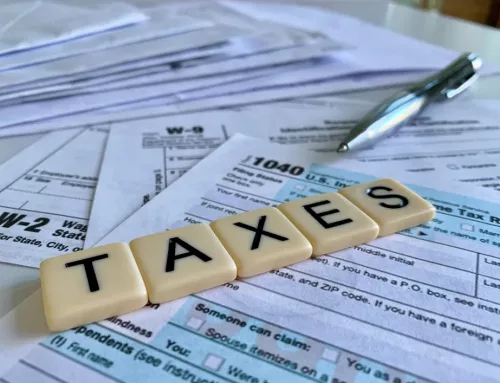The pandemic has made it harder for everyone to keep up with their bills. Perhaps the most stressful is being unable to keep up with your mortgage payments, as you will be facing foreclosure. Foreclosure refers to the legal process where a lender repossesses your property and sells it.
A home is one of the most valuable possessions anyone can have and it’s a big blow to lose it to a foreclosure sale. Read on as we discuss ways for you to slow down or even prevent foreclosure. For help with protecting your assets or with foreclosure laws, it’s best to talk to our Tacoma bankruptcy attorney for foreclosure alternatives. Call our office now to schedule a consultation.
How to Deal with Foreclosure
Check out Coronavirus Relief Options
 Many people are placed into financial hardship from the effects of COVID-19. As such, a number of COVID-related relief solutions are available to alleviate people’s financial trouble and avoid foreclosure.
Many people are placed into financial hardship from the effects of COVID-19. As such, a number of COVID-related relief solutions are available to alleviate people’s financial trouble and avoid foreclosure.
From March of 2020, the Department of Housing and Urban Development temporarily banned any foreclosure of single-family homes bought with federally-backed mortgages.
The Coronavirus Aid Relief and Economic Security (or CARES) Act prohibits lenders from foreclosing homes under Government Sponsored Enterprise or federal sponsored mortgages. This includes those under Freddie Mac, Fannie Mae, USDA, VA, or FHA.
Look into Other Mortgage Assistance Programs
There are other foreclosure rescue options available outside of the pandemic. The government has the Making Home Affordable plan which has resources on preventing foreclosure scams.
In Washington, there is a foreclosure mediation program. It helps homeowners who are facing foreclosure by referring them to a counselor or attorney to mediate with their lender and provide them with their options.
A Washington homeowner is eligible for mediation once they’re received their notice from the lender and have lived in the house to be placed in foreclosure.
Talk to your Lender
One of the first steps you should take is to talk to your mortgage lender. If you can see that you’ll have issues with a mortgage payment, talk to them immediately to see what your options are. Many lenders are more than willing to find a way to prevent home foreclosure.
Here are some options you can discuss with your lender:
Mortgage Modification
This allows you to extend the term of your mortgage loan and refinance the debt. This lets you reduce your monthly payments down to an amount you can afford and eventually catch up. A homeowner can usually qualify if they’ve just recovered from a difficult financial situation but their income is less from before they’ve defaulted.
Reinstatement
A reinstatement happens when you pay off your delinquent mortgage in one lump sum.
Negotiate a repayment plan
You can ask your lender about making payments for the amount you owe. This usually means you have to keep your ongoing payment as well as making payments for the missing amount.
Deed in lieu of foreclosure
With a deed in lieu of foreclosure, you give your house over to your lender to prevent any foreclosure.
Forbearance
You can talk to your lender about suspending or reducing your mortgage payments temporarily. You can then repay your missed payments gradually with monthly payments, in a lump sum, or by a mortgage modification to the whole balance.
Redeem your Home
If you manage to pay off everything before it goes on sale, you can prevent the foreclosure process from completing.
Sell your Home
Once you get the foreclosure notice, you can attempt to sell your home before it gets foreclosed. If there’s no foreclosure auction scheduled and you have a viable offer, then your lender has to consider it.
Discuss with your lenders how the sale works with your specific mortgage. This can let you pay back your loan and earn money, too.
File for Bankruptcy
This is the last resort when all the other foreclosure prevention options fail. Filing bankruptcy puts an automatic stay in place, which delays foreclosure proceedings.
Take note that a bankruptcy filing can severely affect your credit score. Talk to our experienced Tacoma bankruptcy lawyer about whether bankruptcy is the best option for you.
There are two chapters under the US Bankruptcy Code that most people file under Chapter 7 and Chapter 13.
A Chapter 7 bankruptcy is called liquidation bankruptcy. A trustee liquidates your assets and sells them for the benefit of your creditors. Afterward, your debts can get discharged. This doesn’t usually let you keep your home, but it can prevent foreclosure for at least four months. Your income has to be below a certain threshold to qualify for Chapter 7.
Chapter 13 bankruptcies are also known as reorganization bankruptcies. You’ll propose a repayment plan that usually takes 3-5 years. This is the best option for you if you want to save your home. Unlike Chapter 7, this does not have an income requirement.
Final Thoughts
The thought that a mortgage company can foreclose your home can be daunting. Fortunately, you have plenty of options available so that you can retain your homeownership and keep your hard-earned property.
It’s best to begin talking to your lender if you feel like you may miss a payment or you’ve received a foreclosure notice. However, if you’re facing an overwhelming amount of debt, bankruptcy may be the best option.
No one is safe from financial catastrophe. An unexpected termination or a trip to the hospital can send even the most financially savvy people into a panic. It’s easy to be overwhelmed by mountains upon mountains of debt that you cannot even begin to climb out of.
Our firm can help you achieve a financial fresh start. At James A. Jones, Attorney at Law, our bankruptcy lawyer works with Tacoma clients of all backgrounds as they seek the debt relief they need to move forward with their lives.
If you need any help preventing foreclosure, call our Tacoma bankruptcy law firm today for a free consultation!



